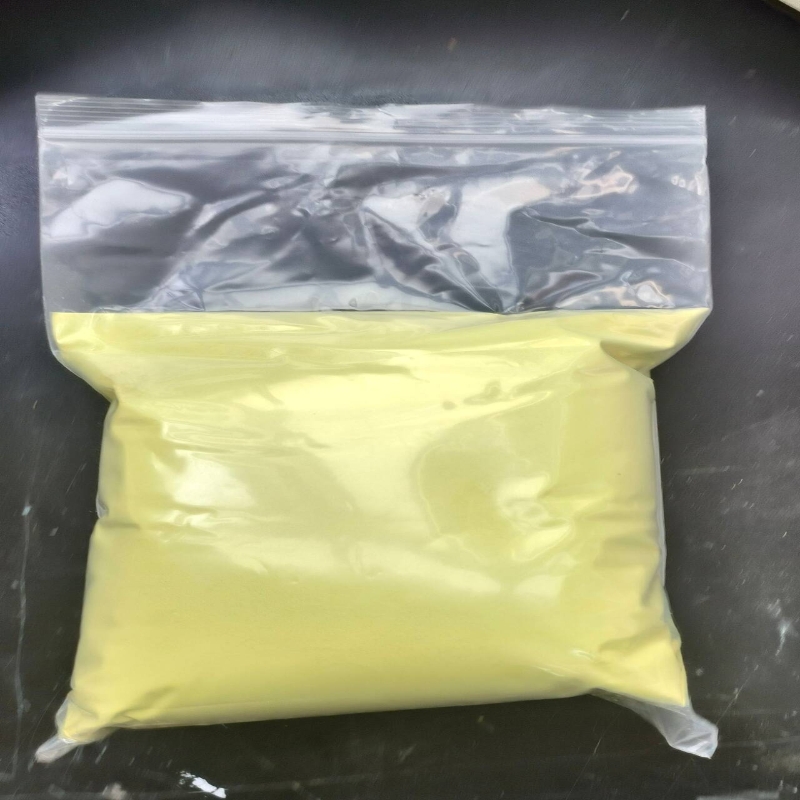-
Categories
-
Pharmaceutical Intermediates
-
Active Pharmaceutical Ingredients
-
Food Additives
- Industrial Coatings
- Agrochemicals
- Dyes and Pigments
- Surfactant
- Flavors and Fragrances
- Chemical Reagents
- Catalyst and Auxiliary
- Natural Products
- Inorganic Chemistry
-
Organic Chemistry
-
Biochemical Engineering
- Analytical Chemistry
- Cosmetic Ingredient
-
Pharmaceutical Intermediates
Promotion
ECHEMI Mall
Wholesale
Weekly Price
Exhibition
News
-
Trade Service
Patients with diseases caused by thrombosis, such as pulmonary embolism, ischemic stroke and myocardial infarction, usually take "blood thinner" drugs such as aspirin and clopidogret to prevent blood clots from forming or growing, help blood flow smoothly and prevent further development of the disease.
however, almost all of the anticoagulants available can cause serious or even life-threatening bleeding side effects after injury.
urgent need to develop safe anticoagulants that reduce or do not have the risk of bleeding.
Recently, researchers from the University of Bern and the Federal Institute of Technology in Lausanne, Switzerland, designed a highly active and stable FXII cyclopeptide inhibitor (FXII900) that reduces experimental thrombosis caused by iron chloride in mice and inhibits blood clotting in rabbits' inositive membrane oxygenation (ECMO) environments without increasing the risk of bleeding and is a promising candidate for safe thrombosis protection in acute medical conditions.
the results of the study were published recently in Nature Communications.
Coagulation factor FXII is a proteinase involved in coagulation pathways in the body, and previous studies have found that genetically modified mice lacking FXII had significantly reduced thrombosis in injury-induced arteries and venous thrombosis in mouse models with no bleeding side effects.
who naturally lack FXII and FXII knockout mice also have normal hemorrhage and do not bleed abnormally.
therefore, drugs targeted at this protease may have anti-thrombosis effects without impairing clotting function.
based on this, the researchers continued to replace some of the amino acids of the previously developed FXII inhibitor FXII618 with synthetic amino acids, evaluated and tested their stability and Ki values, and resulted in a new FXII inhibitor FXII900 that was more effective and highly specific than any prey, stable in human plasma, with a half-life of at least 128 hours and a length of about 25 times longer than FXII618.
researchers who improved affinity and stability of FXIIa inhibitors assessed the ability of FXII900 to block plasma clotting driven by FXII and measured the time of active part of the clotting enzyme (aPTT) in the blood after incubating with FXII900 ) and coagulantase time (PT, reactive coagulation factor activity), it was found that FXII900 extended the aPTT in human plasma by 4.3 times longer than FXII618, and had no effect on PT even at the highest test concentration.
addition, the inhibitor can also extend aPTT in the plasma of mice, rabbits and pigs, and has no extended effect on PT.
this shows that FXII900 can effectively inhibit the intrinsic clotting pathway of the off-body.
evaluated the pharmacogenic dynamics of FXII900 in mice, rabbits and pigs and found that effective plasma concentrations were achieved in animals and maintained at 12-40min without any toxicity or other adverse effects observed.
FXII900 inhibition effect of FXIIa on different species FXII900 inhibition effect on FXIIa of different species was then evaluated by the researchers on the effect of FXII900's thrombosis protection effect in the feclide-induced thrombosis mouse model.
monitored blood flow in mice injected with 7.5% FeCl3 solution in two groups of FXII900 and control treatment. The
study found that blood clots appeared rapidly in seven of the eight control group mice, five had blood clots, five had completely blocked blood vessels, and only three of the mice treated with FXII900 had blood clotting 10 minutes later than the control group, and no complete blood vessel closure had been observed.
showed that FXII900 inhibited thrombosis in iron chloride-induced mice.
the FXII900 and PBS controlled mice's bleeding tendencies were evaluated using the tail cross-cutting model and found that FXII900 had no effect on their normal hemorrhage ability.
FXII900's thrombosis protection and effect on bleeding in mice Because FXII-driven blood clotting is a major challenge in in vitro circulation surgery, artificial lung systems are often used for long periods of time to give life support to severe patients.
Therefore, the researchers used artificial lung rabbit models to test the clinical potential of FXII900 to inhibit FXII-driven clotting in ECMO, and found that FXII900 treatment extended aPTT, active clotting time (ACT) by about 10 times, and treated rabbits showed perfectly normal bleeding time.
's analysis of the artificial lungs found that the blood clots of rabbits treated with inhibitors were significantly smaller than 200 in the control group, indicating that FXII900 inhibited blood clotting in the rabbit's inositor membrane oxygenation (ECMO) environment without increasing the risk of bleeding.
the only problem is that the inhibitor is relatively short in the body, it is too small and the kidneys filter it out," said the authors of the paper.
in the case of artificial lungs, this will mean continuous infusions, as it takes longer cycle times to suppress blood clotting in days, weeks or months.
solve this problem, we are currently designing FXII inhibitors with longer retention times.
"




![2-(Hydroxymethyl)benzo[b]thiophene](https://file.echemi.com/fileManage/upload/cas/593/e79a972f-b55d-4dc1-9113-841c417e0a89.png)


